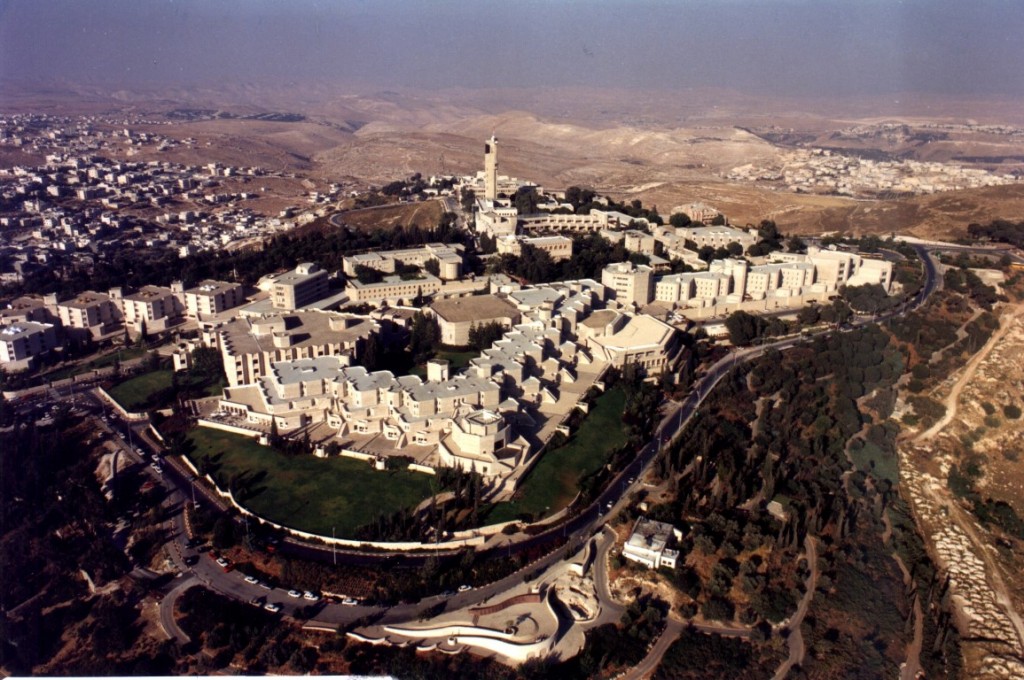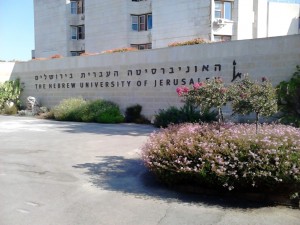This week, the Obiter travels to one of the world’s oldest cities, a cradle of human history, and origin for three of the world’s most widespread faiths: the beautiful, timeless, and stately Jerusalem in Israel.

Giving us a first-hand glimpse into the heart of this ancient place is Aryeh Samuel, currently in the third year of his Juris Doctor, who hails from New York and holds and undergraduate degree in Economics. Aryeh participated in the exchange program to Hebrew University in Jerusalem (one of the many offered through Osgoode’s partner schools across the globe) for the summer of 2013.
Hebrew University is the second oldest post-secondary institution in Israel, and is considered the best university in Israel by several rankings. The Faculty of Law, located at the Mount Scopus campus, offers students from its partner schools the ability to participate in an exchange semester. Courses are offered in English or Hebrew.
“I wanted to experience legal education in a different setting,” writes Aryeh. “I wanted to be able to appreciate what assumptions I have about the world and law, that may not be assumed in another culture or legal system.” Seeing beyond the limits of an insular legal education found in a single university setting was not his only reason to go to Hebrew University. For Aryeh, the exchange was attractive in that it was heavily subsidized, provided three credits towards his degree, and because of his personal connections to Jerusalem.
Aryeh described some of the most anticipated parts of the trip. The city is home to a number of important historic heritage sites: the Western Wall, the Old City of Jerusalem, the Holocaust Museum, the shooque (or the old market), and the pristine beaches in northern Israel. Visiting these places was the highlight of Aryeh’s exchange.
And of course, no coverage of another country is complete without talking about the food. Israeli cuisine is unfamiliar to many Canadians, save a select number of wildly popularized items like hummus, falafel, shawarma, halva, pita bread, and maybe even more recently, shakshuka. Canadians are in dire need of a better introduction to the cuisine of Jerusalem. Aryeh gives his suggestions: a Yemenite dessert called mufleta and an Israeli staple called sabich, a sandwich combining an unlikely pair of egg and eggplant.
An extended stay away from home can be difficult, especially considering that studying abroad is commonly a student’s first time being completely independent in a radically different place, but some things can help to avoid homesickness. “When we were away, Toronto had been hit with a major rain storm, one of the biggest in its history,” Aryeh recalls. “[In Toronto,] buildings had flooded, highways were completely submerged in water. It was a bit sad not to be home experiencing that with my family, but otherwise I was not homesick at all.”
As for the educational component, Aryeh took courses directed more toward public international law, though not entirely relevant to the work he may do in his articling job. Another course, though, was in advanced torts involving statistical analyses in the litigation realm which may become handy training for a broad range of work areas in the future.

An exchange semester, of course, is not going to be effortless and exclusively filled with positive experiences. A point of mention about Jerusalem that visitors should be prepared for is the heavy presence of security throughout the city. “People there are more aware of their surroundings and yet seem to live fairly carefree lives at the same time,” he comments. “Truly remarkable,” he says. Aryeh encourages students to go experience Jerusalem and Hebrew University as well, but helpfully notes “that although the trip may be subsidized, there will be many things that cost money along the way, so be prepared to spend a bit more than you may initially think.” On a final note, Aryeh shares a specific memory from the semester that he feels has had an impact on his life: “touring the site of the Hebrew University café, where a suicide bomber had blown herself up only a decade prior. Our professor described that day, and told us how he had been in there eating lunch only twenty minutes prior.”
